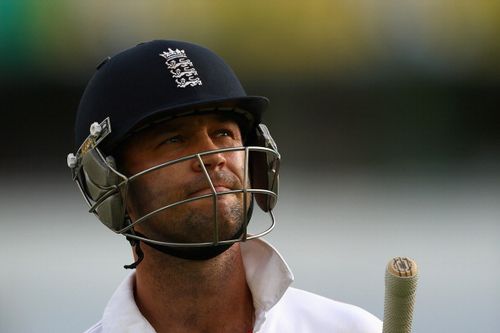
Athletes and their never-ending battle with depression

Jonathan Trott
When Jonathan Trott pulled out midway through the Ashes tour, it took everyone by surprise; there was no hint of the demons that the South African-born batsman had been battling all by himself. It brought back memories of Marcus Trescothick, who had several bouts of the stress-related illness that Trott had been keeping to himself. Stress-related illness has been an evil fought by most professional athletes and not just by those in cricket.
Be it in golf, football or in tennis, the constant travel, pressure of performance in today’s highly competitive sports arena and the time away from family is bound to take a toll at some point. So it is not surprising that such a breakdown is becoming more common in the present-day scenario.
Tennis world number 1 Rafael Nadal, who has been critical of the ATP scheduling, summed it up: “My life is messy because I can be in Shanghai today, Mallorca tomorrow and Paris the day after.” Golfer Rory McIlroy has also warned fellow professionals about the ill-effects of mounting pressure. Though athletes are perceived to be masculine, their minds can run out of gas.
Just to give an example of what Trott went through, Trescothick could not get past Heathrow Airport en-route to Dubai, on a pre-season trip with county side Somerset. Though studies have been conducted on the mental aspect of the game since the ’70s, if any sports person complains about being homesick or reveals his stress related issues, he would be told to man-up and get on with it. In today’s overly-competitive world, though, individual athletes and teams have a slew of coaches to help them out, with mental conditioning professionals slowly becoming the most sought after. Even with more help available around them, many try to hide it under the carpet, for a want of not letting their team down.
“Being in a team can complicate the situation, as the team may depend more on the particular individual,” says Mr Gopinath, a former Indian rugby player-turned-coach. For the top players, the constant media attention and endless sponsorship commitments can also start playing on their mind.
In an individual sport such as tennis, players are free to schedule their year according to their preference. Even then, those at the lower rungs of the ranking need to play as much as possible, as that is their only source of income. Last year, out of 65 tournaments that were played (a rough estimation), 37 were on hard courts: the most demanding surface.
The game you fell in love with, as a youngster, may start deserting you; depression is impervious to one’s achievements and accolades. The breaking point varies from player to player: one may thrive on playing under pressure whereas the other may want a bit more of family time. Ultimately, spending time away from family is the major cause of concern.
As the debate of the relentless scheduling seems never-ending, most professional sports are coming to terms with the seriousness of the issue, slowly but surely.” The domestic circuit too is becoming overly competitive, and International players are required to take part in that as well, which adds pressure”, says Mr P.S Ramesh, a cricket coach. One heartening outcome of the Trott incident is the world wide support he received from other sports’ professionals. Athletes who are the face of their sport, too, are coming out to talk about the issue, which is the need of the hour.
Trott’s case was only the tip of the iceberg, no doubt. With youngsters becoming professionals even at an age of 15, it is a worrying sign. “It is up to the coaches to guide them effectively,” says Mr Natraj, a basketball coach.
Amidst all these, the latest U-turn by Trott – claiming that he was not under depression – has brought severe criticism from players and coaches alike, for it seemed as though he was demeaning those with stress disorders. As more awareness has been raised about the issue, more players should be willing to take help and realise that it is nothing to be embarrassed about.